Recognised authors and referents in the field of education agree on the idea of letting the child play freely, far from excessive intervention and the offer of directed proposals. Among the needs to be satisfied for a full and healthy childhood, play is one of them. Children play out of need, to live; it is their occupation, the most important task at the stage of life in which they find themselves. The best thing an adult can do for a child is to give him/her time and space to be a child, time, and space to play.
Letting them develop from this freedom to play and experiment is to open the doors to learning.
At school we propose free play as a way of relating to the environment and, therefore, as an engine for learning. Generally, children at this stage do not set themselves a goal when they start to play. Play is not designed, it comes naturally and spontaneously in any place and in any culture in the world, it is an innate language of childhood that makes them acquire countless skills. To develop it, the child does not need stimulating toys, full of functionality and colour. The child is a natural player. In fact, the less a toy does, the more the child will do. Jean Piaget said that “children do not play to learn, but they learn because they play“.
At Nexes the play proposal is mostly presented through unstructured material and the opportunities provided by the environment: sticks, stones, leaves, fruits, trunks, pieces of wood, balls, flowers, cones, tools… The child has within his reach an immense source of what could be “toys” that encourage creativity, proactivity, and decision-making. The adults, meanwhile, observe the richness of their play processes and ensure that the spaces where they develop are safe and attractive, and that they have resources and materials appropriate for the age of the children we accompany.
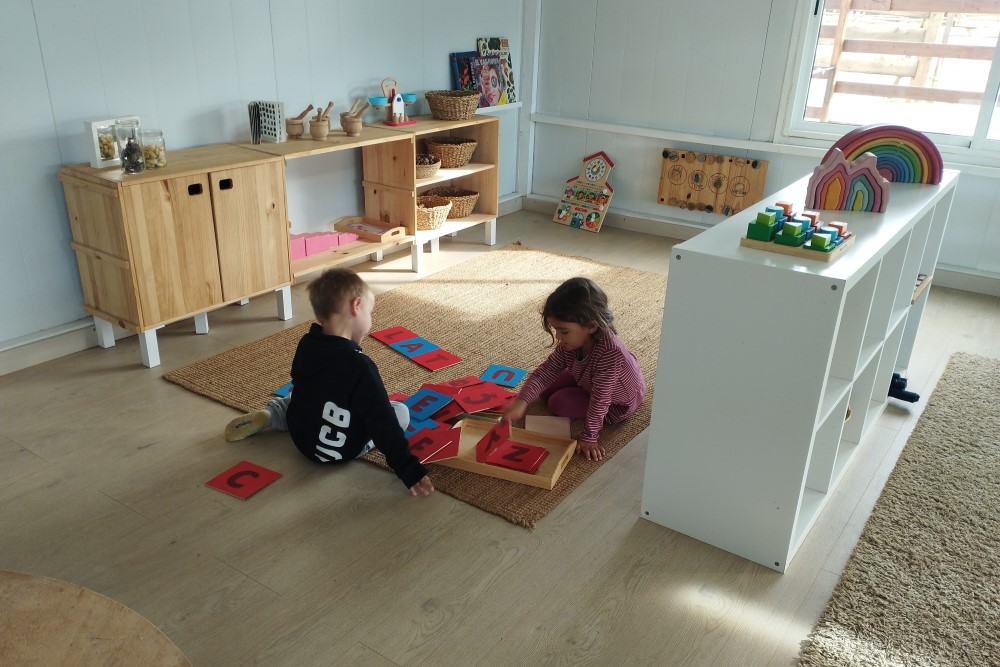
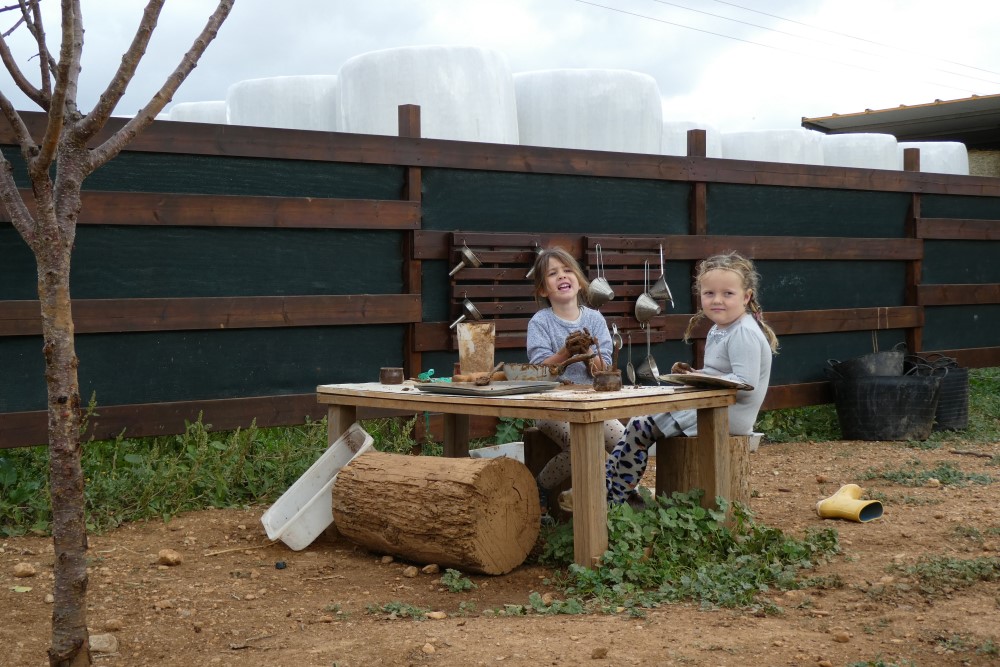
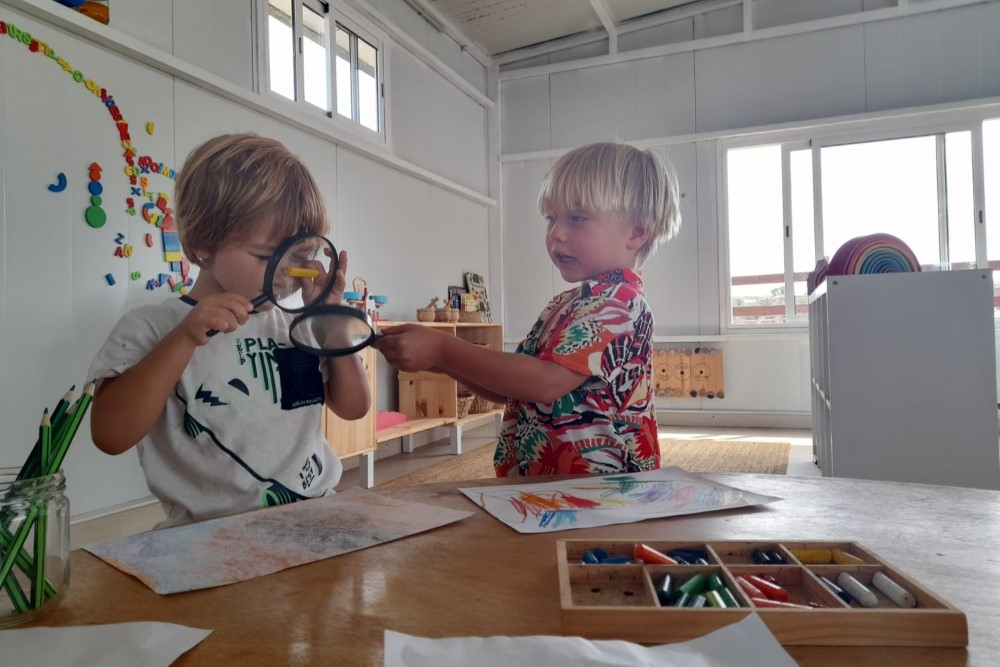
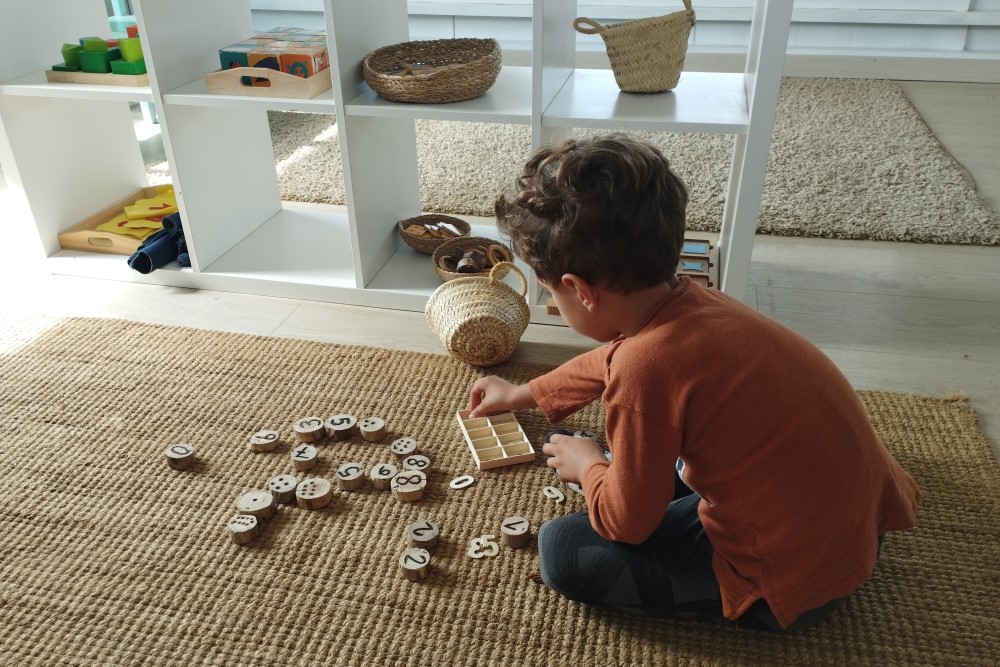
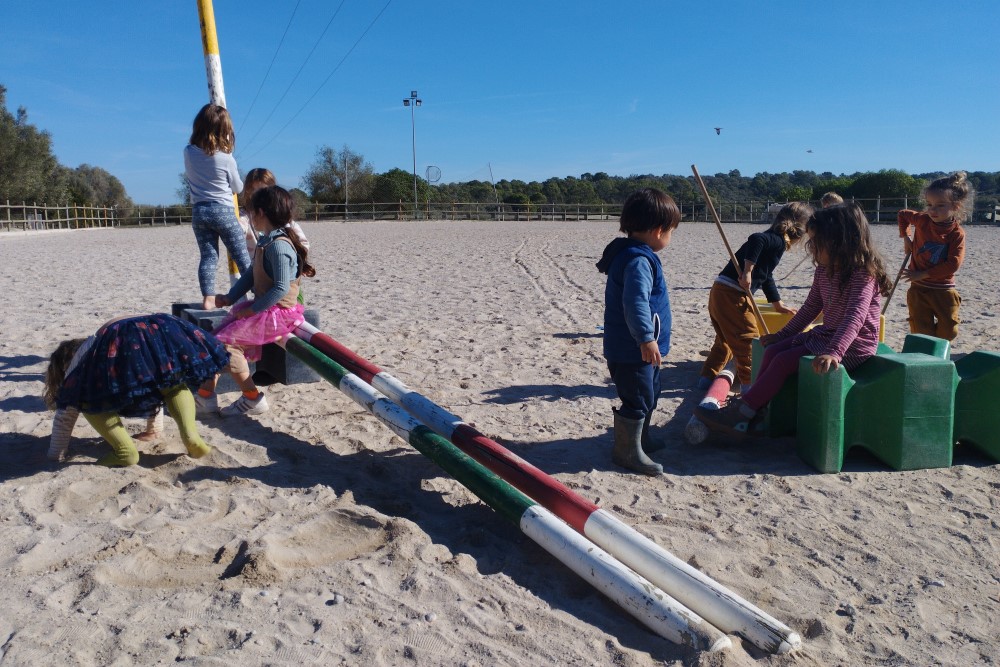
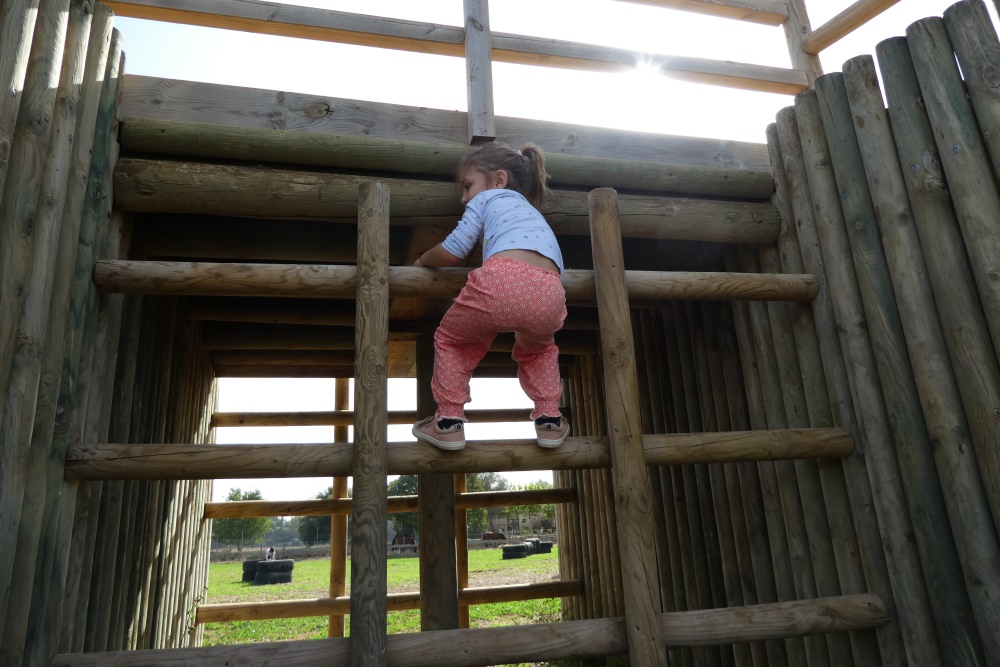
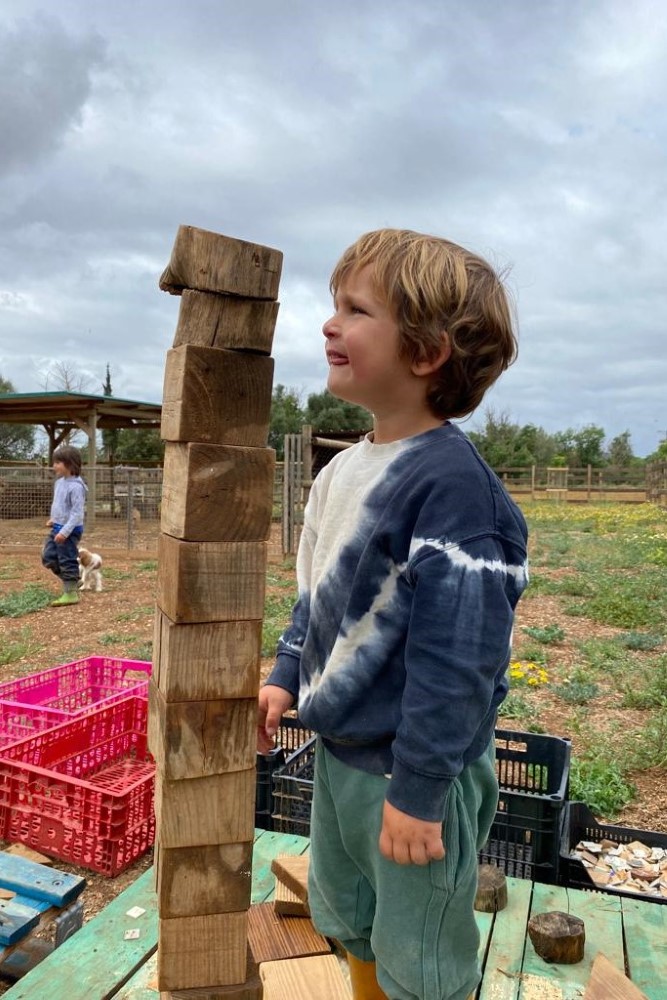
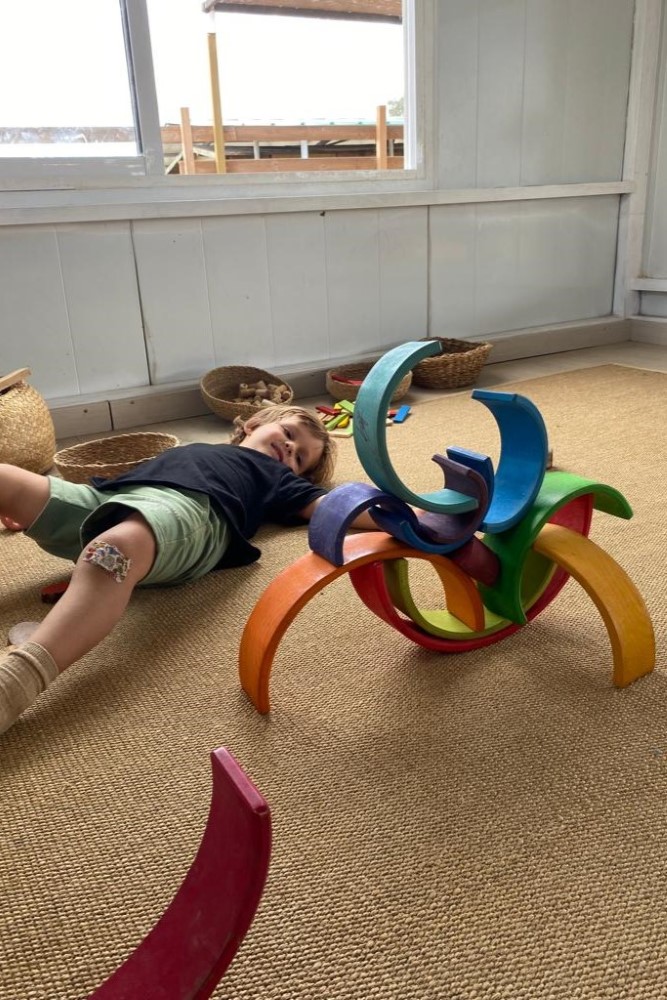
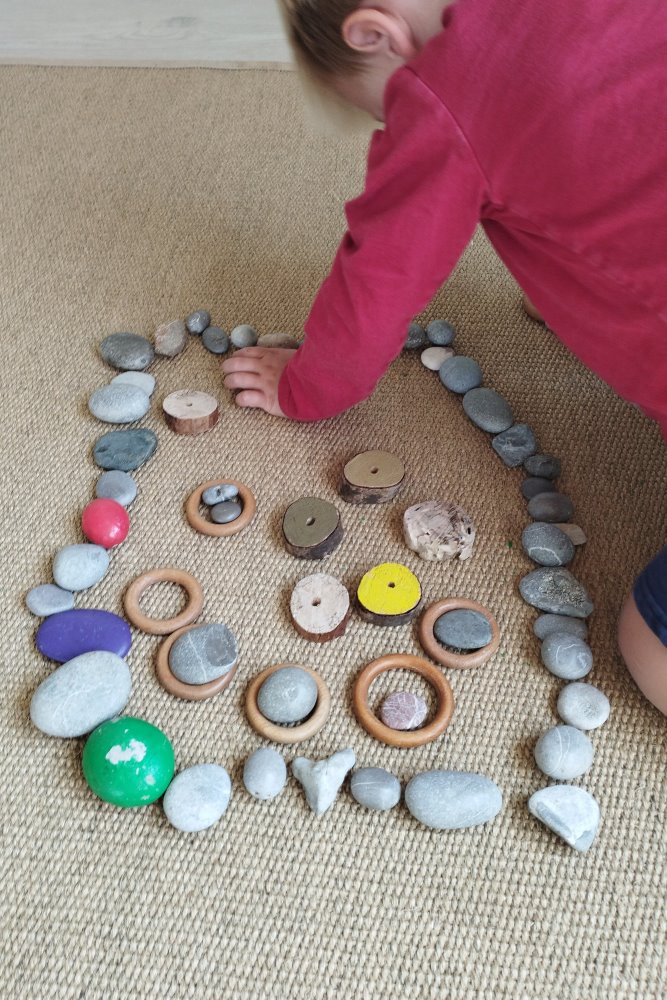
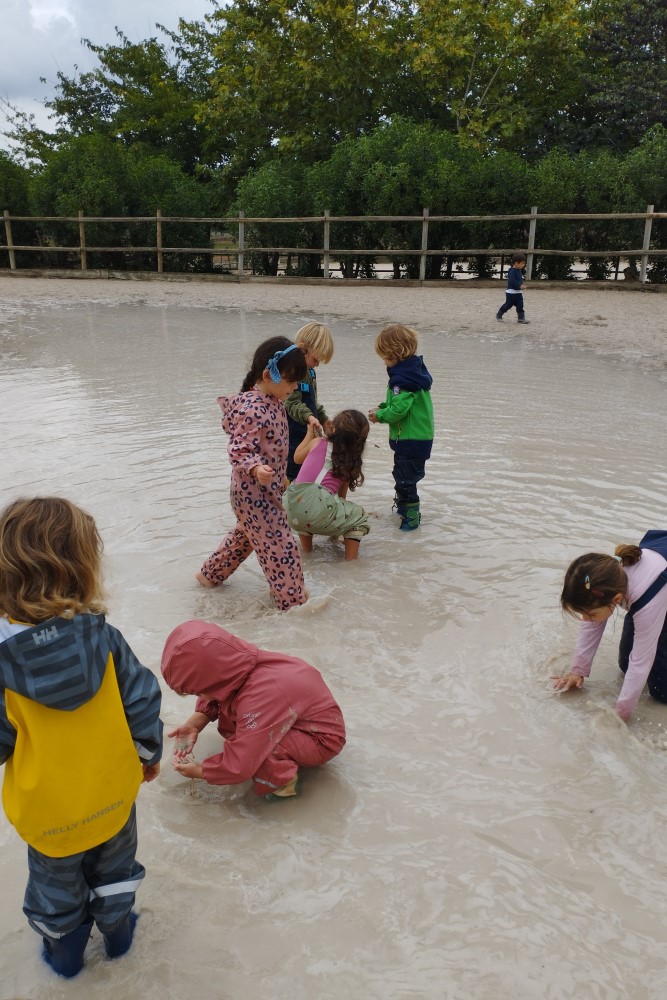
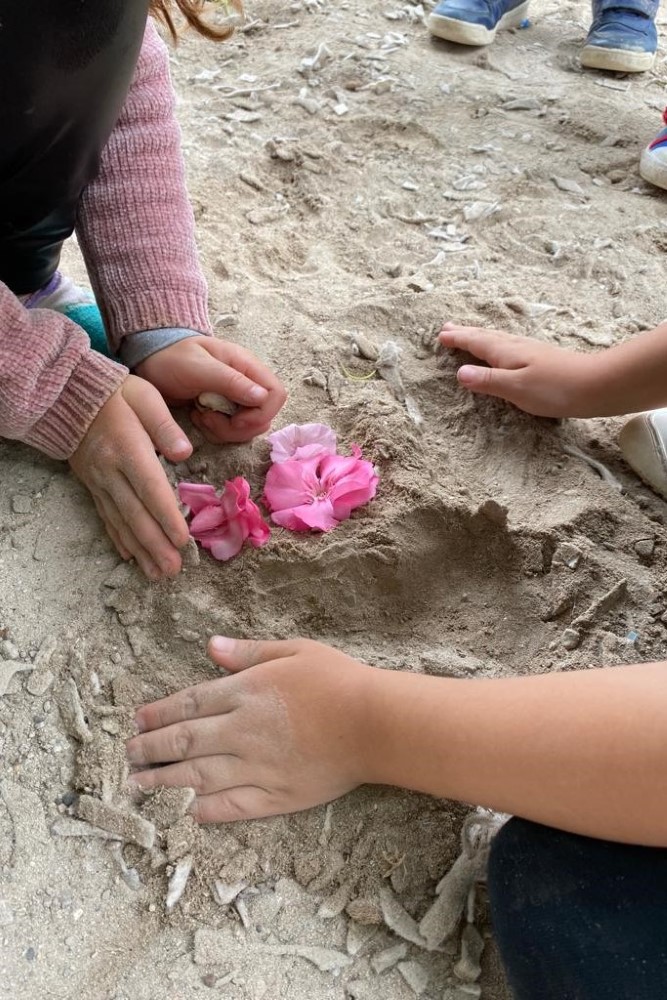
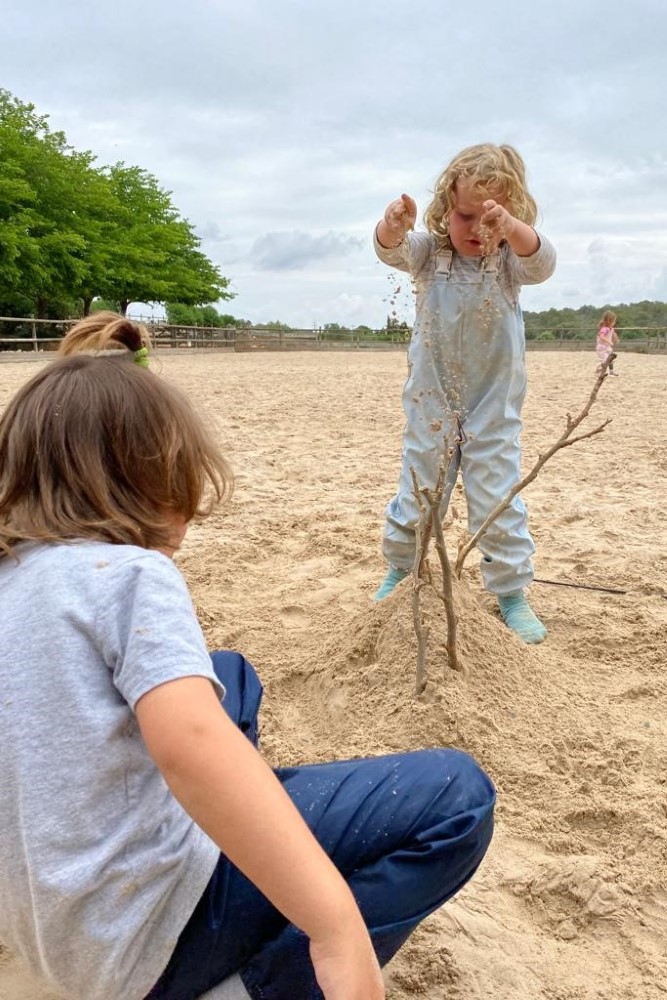
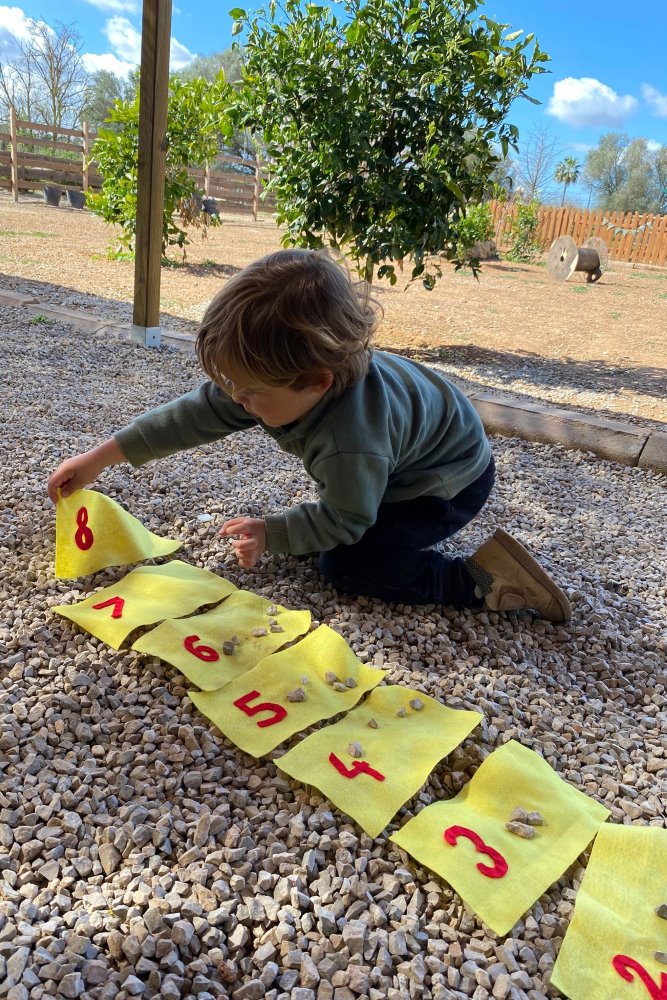
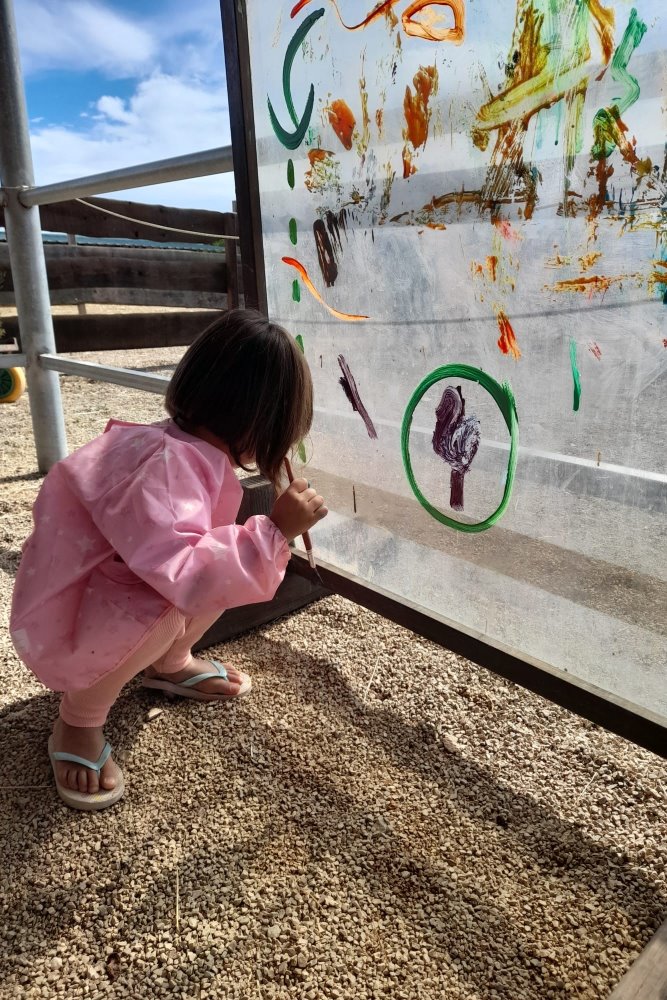
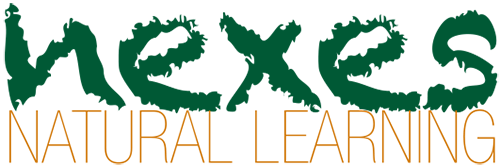
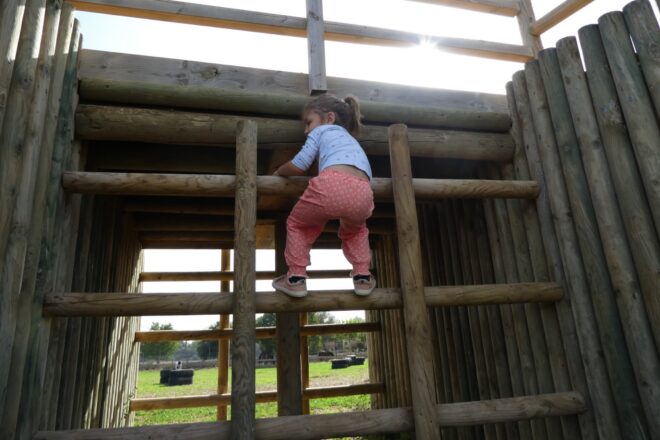 Juego libre
Juego libre